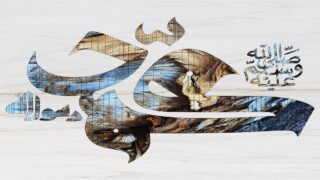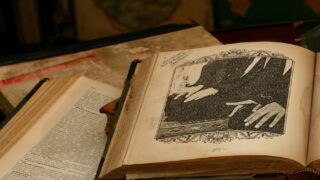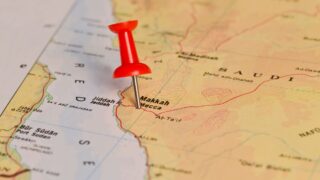Self-confidence is one of the important psychological factors that play a big role in the individual’s self-management, determines the form of his relationship with the other, and contributes to the individual’s employment of his energies and the achievement of his goals and aspirations. This is at the level of the individual, but at the level of the ummah, the achievement of great hopes, victory over enemies, the liberation of sanctities and raising the flag of faith will not stand except on the shoulders of people who have confidence in their Lord, and then confidence in themselves.
The importance of self-confidence
A self-confident person has the ability to manage himself well, face critical situations, overcome obstacles. The self-confidence is among the important factors that enable an individual to open up to others and communicate well with them, in addition to helping him to employ his potentials and abilities for optimal employment, and also enables him to achieve in the present and achieving goals in the future; This makes him feel stability, reassurance, a sense of happiness, and enjoy the thrill of success.
On the other hand, the individual who is not confident in himself finds himself weak when facing critical situations, and he may feel frustrated and discouraged when facing normal situations, he may interpret them as impossible to overcome, that he cannot manage himself, he may suffer from withdrawal and escape, especially in critical situations and lost of the ability to communicate well with others, as he has a severe sensitivity, that he interpret many of the normal things that he is exposed to as frustrating or insulting to his dignity. A person who is not confident in himself does not see his true abilities and talents, or see them as ordinary things of no great values, therefore, he is not able to realize his potentials.
He also has a feeling of frustration that makes him unable to achieve many accomplishments, or set valuable goals in his life, let alone reaching them if they are set, which ultimately makes him feel frustrated and despair, and this makes him lose the pleasure of success.
There is a set of factors that support an individual’s self-confidence, which can be derived from the prophetic approach: It is as follows:
1- change ugly names : the Prophet, peace be upon him, out of his lofty wisdom, was aware importance of good name in strengthening self – confidence, he, may the blessings and peace be upon him, used to like good name and be optimistic about it, and hates the ugly name and changes it , and in the report of Nafi’ from ibn Umar in Sahih Muslim: that a daughter of Omar, she was named a ‘Asiyah, and the Messenger of God, may the peace and blessings be upon him, called her Jameelah. And in another narration according to Imam Muslim also: that the Messenger of God, may the peace and blessings of God be upon him, changed the name of ‘Asiyah and said: “You are Jameelah.”
2- The prohibition on insulting oneself : In the hadith narrated by Al-Bukhari, Muslim and others on the authority of Aisha, the Messenger of God, may God’s blessings and peace be upon him, said: “None of you should say: My soul has become evil, but let him say: my soul has become remorseless . Going by this hadith, it is forbidden that a person to insult himself
It is disliked for a Muslim to describe himself with ugly qualities even if he is sincere, and that is not a matter of humility. Ibn Hajar comments on the previous hadith saying: a person seeks goodness even by good omen, ascribes it to himself no matter how small, he protects himself from evil as much as he could and detaches from the people of evil, even in common terms).
3- positive messages : It was from his approach, may the blessings and peace of Allah be upon him, to bring positive messages to those around him among his companions to draw their attention to the positivity in them and the good qualities that distinguish them; This is what has the greatest impact on forming a positive concept of self, and also has a great benefit in drawing attention to the most important positives and features that a person has, and this is the cornerstone of employing these energies and making good use of them.
Among the sayings of the Prophet, may God bless him and grant him peace, in this section
His saying to Abdullah bin Masoud, may God be pleased with him: “You are a taught boy,” and his saying to Abu Musa Al-Ash’ari, may God be pleased with him: “you have been given a flute from the flutes of the Family of Daud.” And he said to Ashaj Abdul Qais, may God be pleased with him: “There are two qualities in you that God loves, indulgence and patience.”
Among his guidance, may God’s blessings and peace be upon him, was the distribution of titles to those around him from among his companions. In the hadith narrated by Bukhari, Muslim and others on the authority of Ibn Abbas: “If I were to take people as a friend, I would have taken Abu Bakr as a friend.” Also in Sunan of At-Tirmidhi, from ‘Uqbah bin ‘Amir, the messenger of Allah, may the blessings and peace be upon him: “If there was a prophet after me, then Omar bin Al-Khattab would have been.” And in Ahmed’s Musnad on the authority of Uqba bin Amer also: “If there was a prophet after me, then Omar bin Al-Khattab would have been.”
Thus, the Prophet, may God’s blessings and peace be upon him, distributes medals and badges to his companions through different titles that express the most important characteristic of them and what they characterize. This ummah has inherited this in its history. We find in heritage books titles such as: Habrul-Ummah “Ink of the Ummah – Ameenul-Ummah ‘Secretary of the Ummah – Secret keeper – Imam of the Sunnis, and so … ”.
4- Praising the soul with its measures: Among the sayings of the Chosen One, may God’s blessings and peace be upon him, in this chapter: “I am the master of the son of Adam, I am the beloved of God and no pride, I am the most followed among the prophets on the day of resurrection, I am the most knowledgeable of you about Allah and the most pious and I am the worthiest of who keeps to their promises.
Abdullah bin Masoud, may God be pleased with him said about himself: “By Him besides Whom there is no god, there is no chapter in the Book of Allah about which I do not know as to where it was revealed and there is no verse about which I do not know in what context it was revealed, and if I were to know of one having a better understanding of the Book of Allah than I (and I could reach him) on the back of the mule, I would have definitely gone to him on camel’s back.”
And if there is a prohibition on self-purification because God Almighty says:] So do not assert your goodness; (He knows better who is pious) (Al-Najm: 32). 49), and the saying of the most exalted: have you not seen the people who call themselves pure? Yet God purifies whom He pleases, and none shall be wronged even the breadth of a thread. (An-nisa’ 49). Except that the scholars considered this prohibition against self-purification if it was by way of admiration or hypocrisy, and they made an exception for what was by way of speaking about the grace of God.
In the interpretation of Al-Alusi: The verse was revealed to some of the believers who were doing good deeds, then they say our prayers, our fasting and our Hajj, and this is blameworthy, so it was then forbidden if it is by way of admiration or hypocrisy. But no harm if it was not, and the doer would not be considered as someone who is self-purifying himself, Hence it was said that the happiness of an obedience is obedience, and remembering it is gratitude, and it makes no difference whether it is a phrase or a sign.
5- employing energies :Zaid ibn Thabit may Allah be pleased with him came to Madinah at the age of eleven years and the Prophet , peace be upon him in did permit him to partake in the battle of Badr nor in Uhud, but he, may the blessings and peace of Allah be upon him, allowed him in the battle of Al-khandaq when he was already fifteen years old, and when the Prophet, may God’s peace and blessings be upon him, returned him, Zaid confided to his mother to move closer to the Messenger of God, may God’s blessings and peace be upon him, he was then taken to the prophet by some men who told him that: this our son (Zaid bin Thabit) memorizes seveteen chapters from the Qur’an as it was revealed to your heart, and above that, he is clever and knows how to write and read, and he wants to be close to you and obliges you, so listen to him if you wish. The messenger of Allah, Peace be upon him, was excited by his memorization, good recitation, smartness and comprehension of meaning of the Qur’an, and that’s how he became the first reference for the ummah after death of the prophet, may the blessings and peace of Allah be upon him.
This is one of the many examples in the Sunnah that expresses a person’s good understanding of his energies and capabilities. As it happened from our master Zaid bin Thabit, may God be pleased with him, who confided to his mother what he wanted, and also expresses the extent of the Muslim community’s ability to discover talents and employ capabilities. He was taken to the prophet, May God bless him and grant him peace, to display his capabilities the best way he could. Although he, may the blessings and peace of Allah be upon him, returned to our master Zaid bin Thabit in a matter, but gave him a test and employed him the appropriate employment that made him a distinguished person after that in the life of the ummah.
6- Not to send negative messages : The Messenger, may God’s blessings and peace be upon him, said to our master Abu Dharr, may God be pleased with him, when he defamed a man for his mother: “You are a man of ignorance in you.” Interpreters the Hadith said: the word “fiika” means: a trait or a character. In Fath al-Bari: that is, a characteristic of the Jahiliyyah, and in al-Nawawi on Muslim, Aoun al-Ma’bood and Fair Al-Qadeer: that is, a character from their characters. In this, we learn from the Messenger, may God’s blessings and peace be upon him, the educational principle that says: “degrade the behavior, and not the person.”
Also among his guidance, may God’s blessings and peace be upon him, was to filter negative messages, that is, to prevent them from reaching the Companions so as not to harm them. When Omar bin Al-Khattab, may God be pleased with him, said about Hatib bin Abi Balta’a: Oh Messenger of God, may God bless him and grant him peace, let me strike the neck This hypocrite that has betrayed God, His Messenger, and the believers, the Messenger of God said: “Oh Umar .. He is one of the people of Badr. Perhaps God has seen the people of Badr and said: they should do whatever they want, I have forgiven them. In another narration “Paradise is bind on them,” and this is in a mistake that appeared to be high treason, so how about what is not up to that ?!
Between confidence and self conceit
Between confidence and self conceit, as they say, is an hair. Confidence is a virtue that lies in between two vices; Between lack of confidence on the one hand and arrogance or self conceit on the other hand, a person who is not confident in himself sees in himself incompetence and shortcomings, underestimates his abilities and talents, compares himself with others and feels that he is less than them. But as for a self conceit person, He sees competence in himself that he has more talents and capabilities but sees it larger than its real size, he compares himself with those around him and feels that he is better than them, so he raises himself above them and perhaps despises them, and in the hadith: “Pride is disdaining the truth (out of self-conceit) and contempt for the people.”, and the conceited often says “I”; He gives the credit to himself, not to his Lord.
As for the self-confident, he sees in himself competence, and that he has talents and abilities, but he sees them in their true sizes, he does not see himself as being less or better than others, but rather that he has capabilities that are not in others and that others posses capabilities that may not be in him, in addition to that he is always keen on attributing the grace to God for what he possesses and not for himself, and God Almighty was truthful when he says: “As for the grace of your Lord, so speak.”
It would be nice if we and all those interested in the education process had learned how to prepare a self-confident generation connected to his Lord who is able to please himself and fulfill the hopes of his ummah.


















